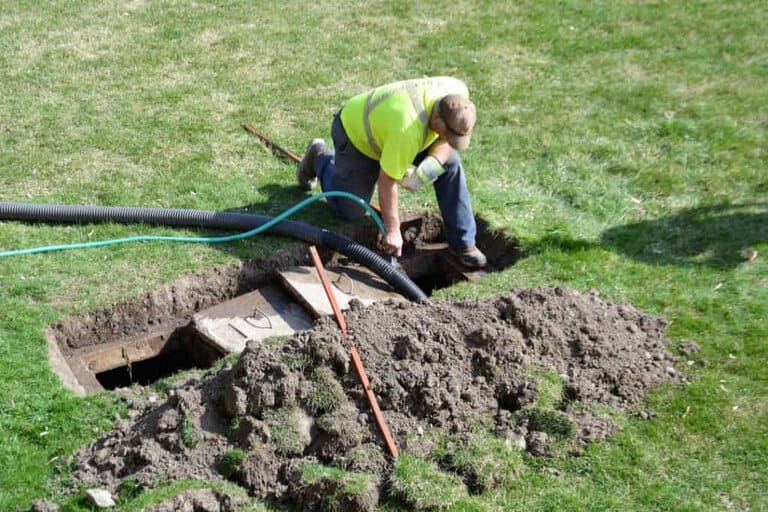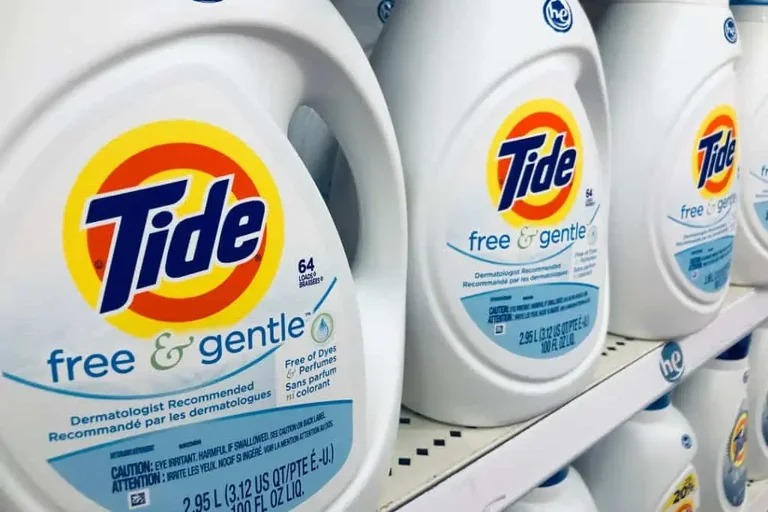When used in recommended quantities, Tide laundry detergent is safe for septic systems when used in the recommended quantity. Tide pods are also safe for use in septic tanks. However, it is advised to go for the detergents’ plant-based, biodegradable and eco-friendly variants.
When you think of your septic tanks, what comes to mind? Another fixture in your home that does the dirty job? Or you never even think about it. I also have fallen victim to the state of forgetting that the septic tank is an active part of my house which needs to be given optimal care and servicing.
It turns out that the work of the septic tank can be hindered or enabled by our actions within the house. I found that certain chemicals that we use for laundry activities may kill or impede the action of microorganisms that are meant to decompose solid matter.
This disruption may end up affecting the efficiency of the septic tank. If you are like me, where your septic tank is not connected to the public sewers, you need to pay attention to the type of laundry products you use.

How The Septic System Works
The septic system is an underground chamber where wastewater from the kitchen, laundry room, and bathroom is treated. The waste drains into a central chamber before separating liquid waste (oil and grease) and solid waste (sludge).
It is then worked on by naturally occurring bacteria before being released into the ground.
Is Tide Detergents Safe for Septic Systems?
Tide laundry detergent is safe if your home has a septic tank as long as it’s used in recommended amounts. This means that using the detergent won’t damage the normal function of the septic tank.
However, powdered detergents tend to clog up sewage systems if used in large quantities.

Can You Use Tide Pods in Septic Systems?
When used in modest quantities, Tide pods are safe in septic tanks. However, some studies indicate that the polyvinyl alcohol plastic used in encasing the detergent doesn’t break down properly, which may pose a risk to your septic tank.
Although the polyvinyl plastic substance dissolves enough not to clog the washing machine system and pipelines, it does not break down.
Is Tide Liquid Detergent Safe in Septic Systems?
The liquid detergent is the safest and most economical option for your septic system of all the Tide products. The liquid format ensures that it does not clog up the pipes of the septic tanks. They, however, shouldn’t be used excessively either.
Should You Use Tide Washing Machine Cleaner in Septic Systems?
Tide washing machine cleaner is an effective way of getting the smell out of your machines. They are septic tank safe because they rely on an oxidation process to work.
This means that the chemicals in the solution oxidize to clean up the machine, but they are rendered inactive before they get to the septic tank.
Requirements For Selecting Laundry Detergents For Septic Systems
Here is a guide to selecting septic safe products:
Choose Septic Safe Products
Always look for detergents with ‘septic safe’ indicators. These are detergents that have ingredients that do not interfere with the normal function of the septic system.
In general, avoid detergents that contain:
- Chlorine bleach
- 1,4 Dioxane, parabens
- Phosphates
- chemical preservatives
- Artificial whiteners
- Chemical dyes
- Fragrances
- Chemical enzymes
- Synthetic foaming thickeners.
When it comes to taking care of your septic tanks, it is better to opt for plant-based cleaning agents with scents from essential oils.
The Detergent Is Eco-Friendly And Biodegradable
Buying eco-friendly products help to protect the earth where your septic tank is buried as they do not harm the environment in the production, packaging, or use. Using natural plant-based agents packed in a biodegradable package such as paper is important.
Using products that are hypoallergenic, fragrance-free, biodegradable, and septic safe all play a part in eco-friendliness.
Use Detergents With Low Level Of Surfactants
Surfactants are surface-active agents containing amphiphilic molecules reabsorbed in the air-water interface. They enable the detergents to soak into the fabric due to their decrease in surface tension.
Surfactants made from chemical or petroleum sources are very harmful to the septic system because they build sludge.
Always go for plant-based surfactants which are septic-safe and clean effectively. Consider products derived from palm oil, coconut oil, and soap nuts.
Using Powder Detergent Or Liquid Detergent
There has been a long-standing debate between powder and liquid detergent for septic tanks. But as long as they contain biodegradable products, they should be fine.
Powdered detergents, however, may contain substances like clay or powdered plastics, which over time can clog up the sewage system, while liquid detergents may contain chlorine bleach and other harmful substances.
This is why it is always advisable to opt for biodegradable detergents. For an aerated septic system, you should go for a high-efficiency or powdered laundry detergent:
Substances You Shouldn’t Pour Down The Drain
- Oil/grease
- Paint thinners
- Solvents
- Insect or weed killers
- Gasoline
- Photographic chemicals
When cleaning out the septic system, ensure that the professional drain cleaners do not use substances like Drano or solutions containing sodium hydroxide, lye, sulfuric acid, or hydrochloric acid.
Homemade Solution To Clean Septic Tanks
- Mix 2 tablespoons of lemon or lemon extract with ¼ cup of baking soda and ½ cup of vinegar.
- Clean a septic fixture or simply flush the solution down the drains. This will ultimately get into the septic tank.
FAQs On Is Tide Laundry Detergent Safe For Septic Systems
What Makes Tides Purclean Safe For Septic Tanks?
The Tides Purclean formula does not contain dyes, phosphates, chlorine bleach, or brighteners. It also uses plant-based solvents, enzymes, and water softeners, which are biodegradable.
How Often Should A Septic Tank Be Checked?
Inspect your septic tank at least once every three years, depending on the number of people using it and the volume of waste generated.
Are Fabric Softeners Good For The Septic Tanks?
Fabric softeners are bad for septic tanks. Using fabric softeners leaves a layer of chemicals on your clothes that attack the septic system and affect the tank’s physical function.